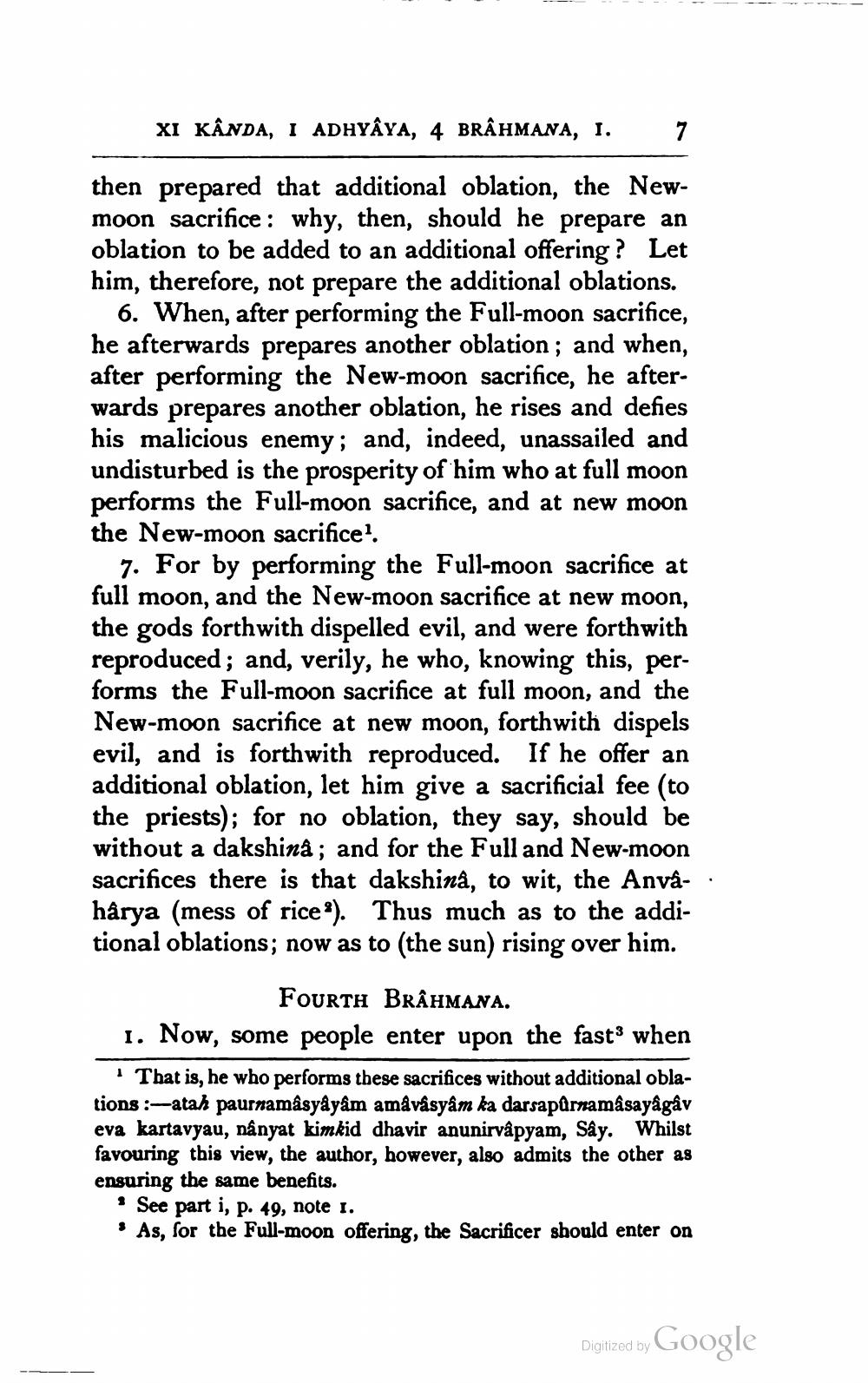________________
XI KÂNDA, I ADHYAYA, 4 BRÂHMANA, I.
7
then prepared that additional oblation, the Newmoon sacrifice : why, then, should he prepare an oblation to be added to an additional offering ? Let him, therefore, not prepare the additional oblations.
6. When, after performing the Full-moon sacrifice, he afterwards prepares another oblation; and when, after performing the New-moon sacrifice, he afterwards prepares another oblation, he rises and defies his malicious enemy; and, indeed, unassailed and undisturbed is the prosperity of him who at full moon performs the Full-moon sacrifice, and at new moon the New-moon sacrifice?.
7. For by performing the Full-moon sacrifice at full moon, and the New-moon sacrifice at new moon, the gods forthwith dispelled evil, and were forthwith reproduced; and, verily, he who, knowing this, performs the Full-moon sacrifice at full moon, and the New-moon sacrifice at new moon, forth with dispels evil, and is forthwith reproduced. If he offer an additional oblation, let him give a sacrificial fee (to the priests); for no oblation, they say, should be without a dakshina; and for the Full and New-moon sacrifices there is that dakshina, to wit, the Anvaharya (mess of rice). Thus much as to the additional oblations; now as to the sun) rising over him.
FOURTH BRAHMANA. 1. Now, some people enter upon the fast when
That is, he who performs these sacrifices without additional oblations :-atah paurnamâsyayam amavasyam ka darsapůrnamâsayågåv eva kartavyau, nânyat kimkid dhavir anunirvâpyam, Sây. Whilst favouring this view, the author, however, also admits the other as ensuring the same benefits.
* See part i, p. 49, note 1. • As, for the Full-moon offering, the Sacrificer should enter on
Digitized by Google




